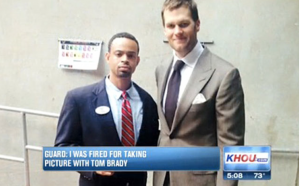I used to spend extensive time in my Law and Ethics class discussing capital punishment. This is an important issue to me; I spent years working on a death penalty appeal for a man who spent 21 years on death row before being released. Growing up, I was vaguely in favor of the death penalty. It seemed to me that are some crimes that are so terrible, some criminals who are so evil, that jail is insufficient.
That all changed my senior year of college. I took a class with Senator Terry Sanford, a former U.S. Senator, Governor of North Carolina, and President of Duke University. Senator Sanford took our class on a tour of the highest security prison in the state of North Carolina. Part of the tour was the death chamber. I will never forget how it chilled me to the bone to think that the warden who was running our tour would take actions to kill another human being in that room. In the abstract, capital punishment can seem reasonable to many; but for me, in the actual death chamber, it seems morally repulsive for any of us to choose to take another person’s life. It seemed we are no better than the criminals if we use capital punishment.
Then I went to law school, and through my studies there and as a lawyer, I became convinced of an indisputable reality: the flaws in our criminal justice system make it impossible to effectively use capital punishment. While reasonable people can disagree on the morality of capital punishment (indeed, I have wavered over the years and when faced with certain horrible crimes), the facts show that our system is flawed; we have likely executed several innocent people and others may be sitting on death row today. For me, the (not so low) chance that we execute one innocent person is enough to require that we eliminate capital punishment altogether. So, I ultimately oppose the death penalty on due process grounds. My favorite articulation of this argument came from Judge Rakoff in Quinones. It is worth a read; basically Judge Rakoff reasons that because execution means by definition that the defendant runs out of chances to prove his innocence, and given the high likelihood of error in our system, we are denying the defendant due process by executing him.
This is all fascinating stuff to the law and ethics people in the world, but I began to have doubts that it was relevant in a business school. So I cut the topic out of my syllabus. Interestingly enough, I have had several former students write me to say how meaningful those discussions were for them; so maybe there is room for this topic in the “general interest” column. But the newest set of arguments against the death penalty actually cue up a fascinating business ethics dilemma.
As described in this bone-chilling article about the execution of Dennis McGuire in Ohio last week, the latest war in capital punishment has to do with the method of execution. Basically, over the years most states have moved to lethal injection as the method of execution. This process requires the defendant to receive several injections of drugs meant to first anesthetize him, then to paralyze the muscles and the heart. Kentucky’s three drug protocol was upheld by the Supreme Court a few years ago, despite concerns about whether it could be administered incorrectly and result in a painful death. (The process used in Kentucky is not approved by vets for putting down animals, by the way.) Most states bought their lethal injection drugs from European companies; many of those companies, faced with the ethical dilemma of their drugs being used for capital punishment, decided to refuse to sell them to the states. So now many states are facing a shortage of the drugs, and are getting creative. That is how Dennis McGuire ended up receiving a new cocktail of lethal injection drugs, which apparently resulted in “struggling, his stomach heaving, a fist clenching.”
In addition to raising serious issues about the measure of our morality, the issue of lethal injection drugs is a great example of how ethical decisions arise in a business setting. The executives at pharmaceutical companies are neither lawyers nor ethicists; they are business people who are now faced with decisions with great moral consequences. How do they make the decision whether to sell the drugs to the state? If the executives have varied views on capital punishment, how do they make a choice as an organization? Do they research the likelihood of pain and suffering when their drugs are used in this way?
For me, I always end up in the same place; we cannot do capital punishment well, so we should not do it at all. For me, the measure of a person is how we treat our worst enemies. If we knowingly inflict pain and torture on another, we are no better than the bad guys. And no one can figure out a way to use capital punishment without pain. Worse yet, because of flaws in our justice system, it is really difficult to be sure that the defendant actually committed the crime. My view pains me when I read of a terrible crime committed by a monster-like person. I want to punish that person; I see the injustice in the victim(s) losing their life while a criminal lives on. But I cannot live with being just as guilty as that criminal.





